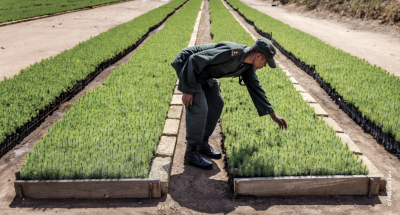A regional approach to more resilient agrifood systems in Africa

The world’s agrifood systems face multiple challenges, including climate change, pest and disease outbreaks, conflict and humanitarian crises. Many of these food systems risks are transboundary, making it essential to build robust, resilient agrifood systems through improved governance, shared resources, cooperation and coordination at all levels – from regional organizations and national governments to cities and civil society.
To address these challenges, the Centre contributed to the design of the USD 873 million food systems resilience programme’s Phase 1 for Eastern and Southern Africa, under the USD 2.3 billion World Bank-financed programme. This support included preparation of an economic and financial analysis and overall greenhouse gas analysis of Phase 1.
The region is home to over 650 million people, with many experiencing acute and chronic food insecurity due to low agricultural productivity, degraded natural resources and insufficient food trade and regional market integration. Disruptions to global supply chains and volatile international food, fuel and fertilizer prices further threaten food security.
The programme aims to ensure that people have reliable access to safe and nutritious food, strengthen rural livelihoods and maintain healthy ecosystems. It will provide a broad, flexible and adaptive range of activities to participating countries, centred around four pillars: rebuilding resilient agricultural production capacity; supporting the sustainable development and management of natural resources; improving market access; and promoting resilience-focused national and regional policies.
It will be implemented across several countries and include the participation of regional organizations and other intergovernmental agencies. Phase 1, for example, covers Ethiopia and Madagascar, with the Intergovernmental Authority on Development and the Centre for Coordination of Agricultural Research and Development for Southern Africa.
The Centre also helped design Phase 2 of the World Bank-financed food systems resilience programme for West and Central Africa. This second phase, approved in 2022, is supporting Chad, Ghana and Sierra Leone to increase their preparedness against food insecurity and strengthen their resilience to shocks.
